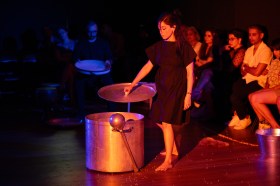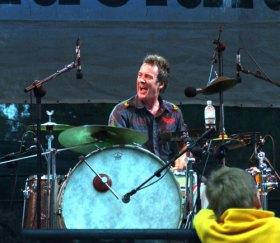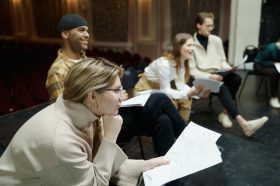Image: shutterstock.com
You finished studying and went out into the workforce. About five years later, you think to yourself, ‘I’ve made a mistake, this isn’t for me.’ Sound familiar?
That was the situation for Alana Iannazo. After studying a media degree at university, Iannazo worked in an agency. She stayed in this field for about ten years before deciding to return to university and become a primary school teacher.
‘I decided that media wasn’t for me anymore and that it had a timeframe on it for a young woman who wanted to start a family later on in life. I felt as though I wasn’t getting as much back from it anymore and I wanted to do something that felt like I was contributing to the community, and something that was more rewarding,’ said Iannazo.
The change was beneficial. Now Iannazo teaches year one students the skills they will need later in life. ‘It was definitely worthwhile. You spend so much of your life at work – you want to make sure that you are really happy with what you’re doing and that it fits your values as well,’ she said.
Julie Brunner, Online Academic Programs Coordinator at Curtin University, said people looking for a career change often turn to online education as a flexible way to fit study around work while they transition. The undergraduate and postgraduate education programs are also among the most popular with students. ‘People aged between 24 to 34 are the majority,’ she said.
‘They’ve left school for about five years or so, they’re out and about, and then decide that it’s not what they want to do for the rest of their life … But they’ve got commitments – they have a mortgage or kids – they are in that time of life. Studying online is a way they can maintain full-time employment and do it piecemeal at night or on weekends, because there is flexibility with online learning. You can do it wherever you are.’
The online delivery of programs is facilitated by Open Universities Australia (OUA), which is owned by seven Australian universities. Through OUA, students can study the exact programs offered on campus by institutions like Curtin University, only adjusted for online delivery.
Brunner said many returning students have completed an undergraduate degree in the arts or another area. These students often enrol in the Master of Teaching (Primary Education) or Master of Teaching (Secondary Education), two of the most popular online courses offered, and go on to work as primary or secondary school teachers.
Didn’t finish high school? No problem
There are even options for those who didn’t finish high school. ‘The “open” part of Open Universities Australia means that it is open access. So if you didn’t finish year 12 or you don’t have an ATAR, in a few of our programs such as education we allow you to complete four units that are open access in that course. If you are successful, if you can complete them and do the work required; these units are like an inverse entry into the course,’ explained Brunner.
‘Those four units are part of the course; you’re not doing some preparatory unit to get you into university. For everyone who wants to complete university education, if you can do the work you can get in through the open access program. A lot of applicants are successful in that approach.’
‘We arrange all your practical placements in schools right throughout Australia so you don’t have to come over to Western Australia. You can get your practical placements in your home town and in your community, so it really allows people to be educated where they are and not have to come to a metropolitan area,’ Brunner concluded.
To explore teaching courses available through Open Universities, visit http://studyonline.open.edu.au/ppc/teaching-courses






